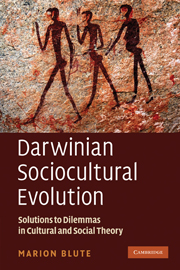Florestan Fernandes at the University of Toronto
In the academic year 1969-70 as a new graduate student in Sociology at the University of Toronto I took a course in “Latin American Societies” taught by Prof. Florestan Fernandes. I had a strong interest in economic and social development in the “third world” as it was called it in those days. I had spent two years after my Bachelors degree in Psychology and English as a Canadian University Service Overseas volunteer (the Canadian version of the American Peace Corps) teaching in eastern Nigeria. I and other volunteers were horrified at the English curriculum in secondary schools and teacher training colleges. It was composed exclusively of English novels and poems. We took great pleasure in introducing the students to Nigerian novels and poetry such as Chinua Achebe’s novel Things Fall Apart and Wole Soyinka’s poetry which they very much enjoyed. (Soyinka later became the first African to win the Nobel Prize in Literature.) I had also travelled in South America in Ecuador, Peru, Bolivia, Paraguay and Brazil for some months. Another ex-volunteer who had been stationed there told me he thought that the people of the altiplano area there were the poorest in the world but I had told him I thought that those of the Sahelian area of Africa were so I decided to see for myself!
I had also been politically active in protesting the siege of Biafra and along with other ex-volunteers and others, in organizing a teach-in on “The Crisis in Development”. Rather than an afternoon or evening of lectures, we did the teach-in a different way. We organized four weeks of discussion groups in the community, churches, recreation centres and so on. Each of us led one group having produced four handbooks with readings and questions for discussion. A few of the readings were from works by Frantz Fanon and Ivan Illich.
I have fond memories of Prof. Fernandes and his lectures and was particularly impressed, not only by the content, but also by his academic rigour. He walked in each week and sat in a small circle with ten or so of us and read his lectures which he had previously written out in full. The lectures were eventually published in a book “The Latin American in Residence Lectures”, Toronto, University of Toronto, 1969-70 edited by Prof. Kurt Levy, a political science professor. I gather that I and another graduate student from the course assisted the editor with some comments. When Prof. Fernandes gave us pretty much free reign on topics for a paper for the course, I decide to follow up on my interest in Frantz Fanon and Ivan Illich on development and wrote arguing that there was a convergence of their views on autonomous development.
After another year, once my MA degree was completed, my interests took a somewhat different turn. I eventually wrote my PhD thesis on comparing theories of change in biology, psychology and the social sciences in the sociology department but with an interdisciplinary committee. Among other things I wrote a fairly widely cited article on “Sociocultural Evolution: An Untried Theory” on the idea that culture and social organization and not just genes “descend with modification”. For example, the languages within each of some two hundred language families have descended with modification from a common ancestral language. I taught at the University of Toronto, The University of Western Ontario (now Western University) and eventually returned to the University of Toronto as Associate Professor, then full Professor then Emeritus (retired) Professor even though I am still active. In 2010 I also published a book with Cambridge University Press, “Darwinian Sociocultural Evolution: Solutions to Dilemmas in Cultural and Social Theory”.
Looking back now on the paper I wrote for Prof. Fernandes’ course (which I actually managed to find a copy of when asked by Diogo Valença and which he had published translated into Portugese along with this note in Novos Olhares Socials – UFRB V 3(2) 2020) my most egocentric memory is that he tried to give me a grade of 100 to which the powers that be objected so I ended up with a grade of 90 which was fine with me! But reading through the paper now, I don’t think I would change the substance at all – autonomy in development is as important as ever. And today the pandemic problem (hopefully in the short run), and the climate crisis in the longer run, are the two most important problems facing us all. I have every confidence Prof. Fernandes would agree with that as well were he still with us.


Leave a comment